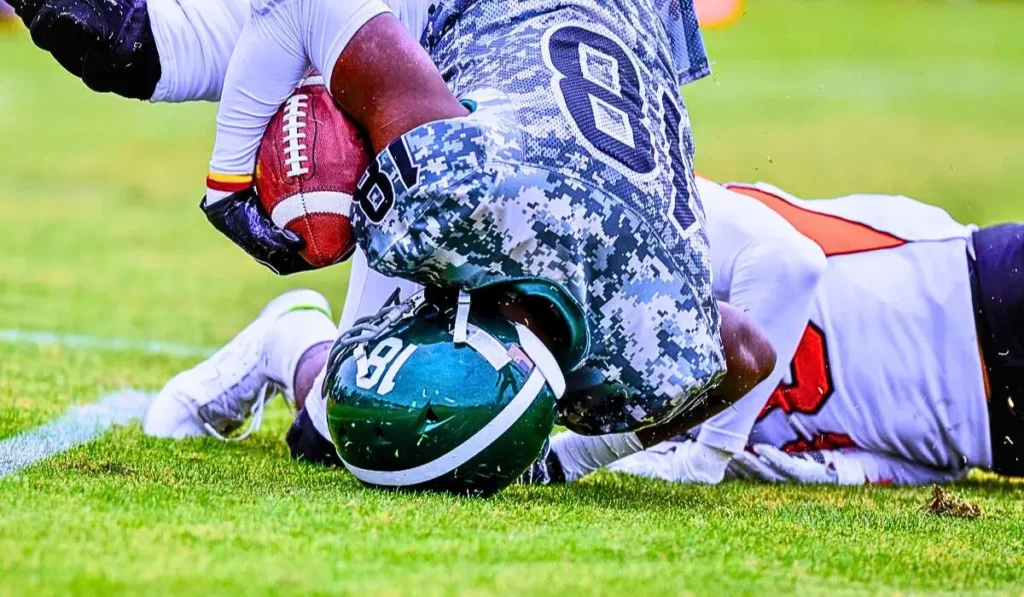A Concussion is a moderate brainiac affliction caused by a bump to the head or a whack to the body. The trauma may range from gentle to intense and can happen to children and adults. It is crucial to seek medical attention immediately as it can lead to severe health issues if left untreated.
Recovery from a Concussion is an intricate process. A comprehensive recovery strategy directed by a medical professional with expertise in Concussion to supervise the treatment and procedures may provide a healthy recovery and evade a lengthy recovery term.
Symptoms Of Concussion
If you are an athlete who has suffered a blow to the head or body, follow up with the coach, trainer, or medical professional without hesitance to avert further brain damage, additional bone injury, and prolonged recovery.

If you feel fine initially, symptoms may emerge hours or days after the impact, causing a Concussion. Athletes with a Concussion may lack balance and have sluggish body language. Other symptoms include;
- Headache
- Nausea and vomiting
- Dizziness and balance concerns
- Blurred vision and visual troubles
- Sensitivity to noise and light
- Difficulty with concentration and remembrance
- Difficulty in communication
- Irritability and mood swings
- Nervousness and drowsiness
- Changes in sleeping patterns
- Changes in personality and behavior
Recovery Timeline
The analysis, therapy, and recovery process varies from one person to the other. A person impacted by a Concussion is nursed depending on age, gender, effect, and previous health conditions.
Following a Concussion, athletes may restore their regular activities and training with the approval of a Concussion Specialist. Research and reports reveal that athletes may recuperate from a Concussion within 30 days, whereas there are instances of recovery taking longer and impacting their health adversely.
Recovery Strategies
Recovery focuses on rebuilding biological, psychological, and cognitive fitness. As and when you disengage and resume your regular activities, you can enhance the recovery process effectively by following a few methods.
Hydrotherapy
Hydrotherapy is a method of recovery that uses water as treatment in any form. The pivotal benefit of hydrotherapy is that they have a low impact on the body and have no side effects. It gives physical and mental relaxation and relieves pain. Water-based exercises also improve cognitive health and extricate stress and strain.
Relaxation
Getting plenty of rest is a crucial strategy to enhance the recovery from a Concussion. The brain needs time to cure, and permitting regular breaks will allow the brain to heal expeditiously. The eventuality of a Concussion is that the brain is offended due to the impact.
Avoid movements that require continuous physical and cerebral exertion. It is also critical to know that resting your body for a prolonged period can exacerbate the symptoms and delay the recovery. It is significant to preserve a balance in the activities.
Healthy Diet
Consuming a healthy and nutritious diet is necessary for everyone, especially during a recovery from a Concussion. Foods and beverages that boost nutrient absorption and antioxidant activity assist in the healing of the brain and its wellness. Fruits, vegetables, salmons, dry fruits, and nuts help to sustain a balanced diet and stimulate brain functions.
It is mandatory to avoid processed foods and sugary contents as they may contain unhealthy additives during recovery from Concussion.
Hydration
Water constitutes about 73% of the human brain. So, it is essential to drink plenty of water when recovering from a Concussion. Drinking water keeps the body hydrated and reduces the risk of worsening the symptoms and recovery time.
Exercises and Meditation
Moderate exercise and workouts contribute to increased blood flow to the brain. It is essential to begin slowly and cautiously. Conservative activities like walking and stretching will help to start and gradually increase the intensity.Meditation helps to calm the senses and comfort the brain.
Meditation also helps to retain the composure of the body and enhances the recovery process.
Exposure to Electronics
A concussion is an acute injury that requires downtime and a stint to heal appropriately. Resting with electronic gadgets or watching television can aggravate the Concussion symptoms and delay recovery.
The radiation from the electronics can have adverse effects on the brain. Overexposure provokes headaches and eye strain and leads to difficulty in sleeping.
Conclusion
Athletes sometimes approach Concussion as a mild injury. Overextending to accomplish prematurely can prevent recovery, and it may lead to more severe health consequences.
There are distinct prospective challenges for an athlete to recover from a Concussion. It is necessary to endure the process with the help of a medical officer to avoid post-concussion syndrome.
Read More : Concussion Rehabilitation: A Step-By-Step Guide!
Our recommendations are rooted in genuine belief in the benefits of the products bring to users. When you purchase through our links, we may earn a commission, supporting our testing and development without adding any cost for you. Learn more.

Dr. David G Kiely is a distinguished Medical Reviewer and former General Medicine Consultant with a wealth of experience in the field. Dr. Kiely’s notable career as a General Medicine Consultant highlights his significant contributions to the medical field.


